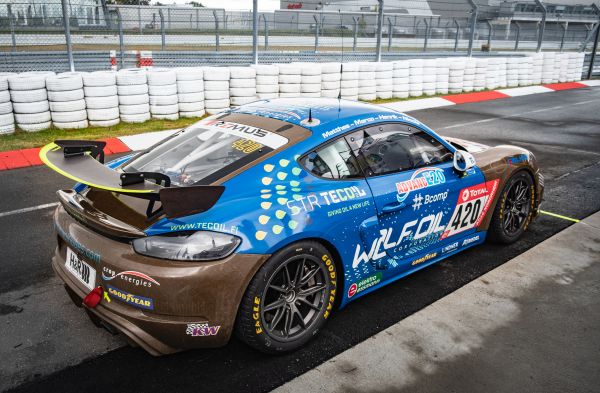We are part of the funded project “Biobased resins for the serial processing of fibre-reinforced components (BioResinProcess)”
Biomaterials are an important element in the implementation of the German National Bio-economy Strategy
The German Federal Ministry of Food and Agriculture (BMEL) is funding the development of car body parts with a high proportion of renewable raw materials since October. Researchers at the Fraunhofer Institute for Wood Research, Wilhelm-Klauditz-Institut WKI and HOBUM Oleochemicals GmbH aim to develop a bio-composite material. It will be made of plant fibres and a vegetable oil-based resin system that can be processed industrially into car body components. Using the Bioconcept-Car as a test module, they optimize the technical performance of the components until they are ready for series production and road approval.
Through its Renewable Resources funding programme, the BMEL has been supporting the development of bio-based materials in car body construction for several years. The three-year joint project “Biobased resins for the serial processing of fibre-reinforced components (BioResinProcess)” has started. While so far the focus of funding has been mainly on natural fibres, attention is now increasingly turning to bio-based resin systems. BioResinProcess ties in seamlessly with the funding project “Sustainable Biohybrid Lightweight Construction for Future-oriented Mobility”, which was completed in summer 2020. This is the first time that series production of a body component made of natural fiber-reinforced materials has been achieved. In this follow-up project, the bio proportion of the components is to be increased to at least 85 % and their processing optimised using the RTM (resin transfer moulding) process.
Further steps in the industrial production are surface treatment and final painting. Suitable bio-based solutions are being sought for both steps. The aim is to design a series component made of bio-based composite materials with regards to the requirements of road approval. A particular attraction of this project is the composition of the partners: With the Fraunhofer WKI and HOBUM, application-oriented research and an industrial partner are represented on the materials side. The automotive industry is directly involved with Porsche AG, which contributes its technical know-how as an associated partner. A high level of attention both in the automotive industry and in public is generated by the Four Motors racing team, which tests the developed body components under real conditions and fires up media coverage.
Parallel to the goal of obtaining road approval, the partners are working on increasing the application potential of bio-composite materials. Bio-composite materials are not only in demand in the automotive industry. In fact, various industrial sectors are placing great hopes on these innovative materials, which enable inexpensive lightweight construction. Thus, the BioResinProcess research project ties in with the German National Bio-economy Strategy of the Federal Government. Car body components made from renewable raw materials can be used to clearly demonstrate how the conversion to a sustainable, cycle-oriented economy based on biogenic raw materials can work. In addition, the use of plant fibres and vegetable oils for the production of bio-composites illustrates the important role of agriculture and forestry as a producer and supplier of raw materials.
However, in order to unlock the potential of biogenic raw materials, research funding such as that provided by the BMEL’s Renewable Raw Materials programme is still needed.

